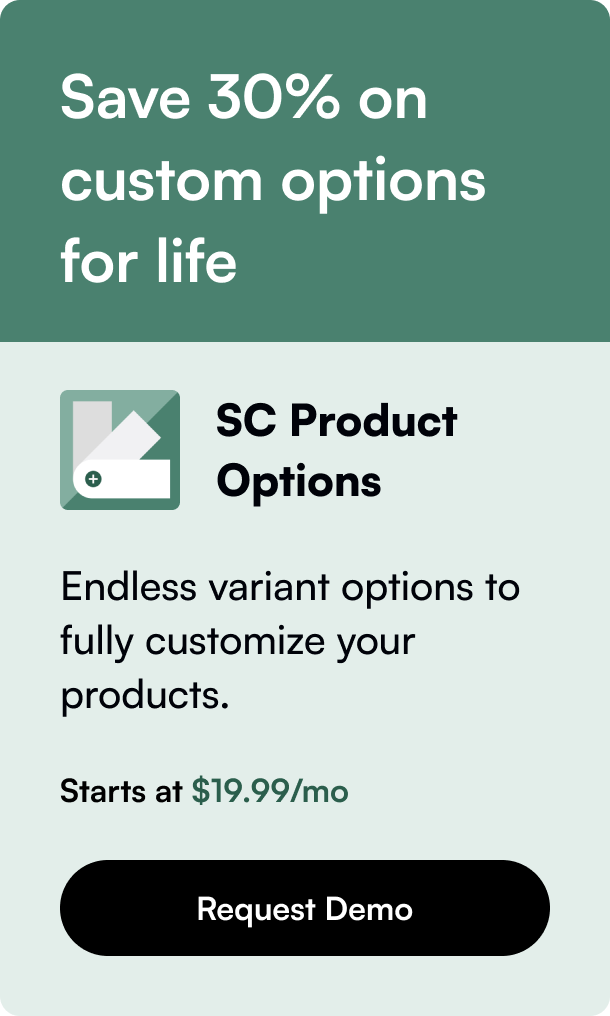Table of Contents
- Introduction
- Understanding Open-Source Platforms
- Exploring Proprietary Platforms
- Cost Comparison: Initial Investment vs. Long-term Value
- Scalability and Performance
- Security and Support
- Making the Right Choice for Your Business
- Conclusion
- FAQ
Introduction
In the dynamic world of eCommerce, one major decision can shape the trajectory of your online business: choosing the right platform. Whether you're a startup or an established enterprise, the choice between open-source and proprietary platforms can impact your flexibility, functionality, and growth potential. This blog post will delve into the key differences between these platforms, drawing on expert insights to help you make an informed decision for your online store.
IronPlane, recognized for its expertise in Magento development, brings extensive experience with both open-source and proprietary platforms. By the end of this post, you will gain a comprehensive understanding of the advantages and challenges associated with each, helping you decide which path aligns best with your business goals.
Understanding Open-Source Platforms
Open-source platforms, such as Magento Open Source, are incredibly popular in the eCommerce realm. Their main attraction lies in the flexibility and control they offer to developers and businesses. By providing access to the source code, open-source platforms allow significant customization, enabling solutions that are tailored to specific business requirements.
Advantages of Open-Source Platforms
Customization and Flexibility: Open-source platforms offer unparalleled freedom to modify and enhance your eCommerce site. This is particularly beneficial for businesses with unique needs or those aiming to create a distinct customer experience.
Community Support: A vibrant community of developers and users continuously contributes to open-source platforms, ensuring a wide array of plugins, themes, and extensions are available. This collective support also aids in rapid problem-solving and innovative enhancements.
Cost-Effectiveness: Many open-source eCommerce solutions come with lower initial costs since they are free to use. This can be particularly advantageous for startups or smaller businesses operating on limited budgets.
Transparency and Security: Open access to the source code means security vulnerabilities can be identified and fixed by the community rapidly. However, this also implies that your in-house team must stay proactive about implementing security updates.
Exploring Proprietary Platforms
Proprietary platforms like Adobe Commerce (formerly Magento Commerce) offer a more streamlined, ready-to-use solution. These platforms are typically developed and maintained by single vendors, providing built-in features and dedicated support.
Advantages of Proprietary Platforms
Integrated Features: Proprietary platforms come with a suite of built-in features optimized for performance and ease of use. This can save considerable time and effort in setting up and maintaining your online store.
Dedicated Support: One of the significant advantages of using a proprietary platform is access to vendor-provided support. This ensures that any issues or questions can be resolved quickly, minimizing downtime and maintaining seamless operations.
Security: These platforms often include robust security features and regular updates managed by the vendor, providing peace of mind and reducing the burden on your IT team.
Scalability: Proprietary platforms are designed to handle significant growth, making them ideal for businesses with rapid expansion plans. Many offer advanced analytics and performance optimization tools out-of-the-box.
Cost Comparison: Initial Investment vs. Long-term Value
When weighing open-source against proprietary eCommerce platforms, it's crucial to consider both initial and long-term costs. While open-source platforms generally have lower initial expenses, they might require more significant investments in customization, development, and ongoing maintenance. Conversely, proprietary platforms often entail higher upfront licensing fees but can offer lower long-term costs through built-in features, support, and maintenance.
IronPlane’s eCommerce consulting services can be invaluable in helping you navigate these cost considerations, ensuring you select the most cost-effective solution tailored to your business needs.
Scalability and Performance
Both open-source and proprietary platforms offer scalable solutions, but their approaches differ. Open-source platforms allow for extensive customization to support growth, which is perfect for businesses requiring a tailored system as they expand. On the other hand, proprietary platforms often provide out-of-the-box scalability features, which simplify the process of scaling your operations and can be more efficient for businesses looking for a straightforward growth strategy.
Optimizing your platform for performance, regardless of your choice, is essential. IronPlane’s Magento site audit services can ensure your eCommerce platform remains robust and efficient as your business scales.
Security and Support
Open-Source Platforms
- Community-driven Updates: Security in open-source platforms relies heavily on the active community for updates and patches.
- Self-managed Protection: Businesses are responsible for implementing and managing their security protocols.
Proprietary Platforms
- Vendor-provided Features: Proprietary platforms often include comprehensive security measures managed by the vendor.
- Dedicated Support Teams: 90% of proprietary platforms provide dedicated support to handle any security concerns promptly.
IronPlane offers extensive Magento security services to bolster protection for both open-source and proprietary platforms, ensuring secure transactions and data integrity.
Making the Right Choice for Your Business
The decision between open-source and proprietary platforms hinges on various factors, including your business size, budget, customization needs, and long-term growth plans. Here are a few considerations to help guide your decision:
- If customization and flexibility are your top priorities and you have a capable development team, an open-source platform like Magento Open Source might be the best fit.
- If you prefer a turnkey solution with robust support and minimal maintenance, a proprietary platform such as Adobe Commerce could be more suitable.
IronPlane’s team of experts can provide tailored guidance throughout this decision-making process, ensuring you choose a platform that aligns with your business objectives.
Conclusion
Both open-source and proprietary eCommerce platforms have unique strengths, and your choice will significantly impact your online store's success. Whether you lean towards the flexibility of an open-source platform or the integrated features of a proprietary solution, IronPlane stands ready to support your eCommerce journey.
By leveraging IronPlane's comprehensive Magento development services — from initial setup to ongoing optimization and support — you can ensure your platform is primed for success. Ready to elevate your eCommerce business? Contact IronPlane today to explore your platform options and find the perfect solution for your unique needs.
FAQ
Q: What are the main differences between open-source and proprietary eCommerce platforms? A: Open-source platforms offer extensive customization and control but require self-managed security and updates. Proprietary platforms, while typically more costly upfront, provide built-in features, dedicated support, and vendor-managed security.
Q: Which platform is more cost-effective in the long run? A: Open-source platforms may have lower initial costs but might incur higher long-term expenses due to customization and maintenance. Proprietary platforms require higher initial investment but can offer lower long-term costs due to built-in features and vendor support.
Q: Can my business scale effectively with either platform? A: Yes, both open-source and proprietary platforms offer scalability. The main difference lies in the approach and ease of scaling. Open-source platforms require more hands-on customization, whereas proprietary platforms provide built-in scalability features.
Q: How does security management differ between the two types of platforms? A: Open-source platforms rely on community-driven updates and require businesses to manage their security. Proprietary platforms offer vendor-provided security features and dedicated support teams, reducing the burden on your IT department.
For personalized assistance in choosing the right eCommerce platform for your business, contact IronPlane’s team of experts today.







